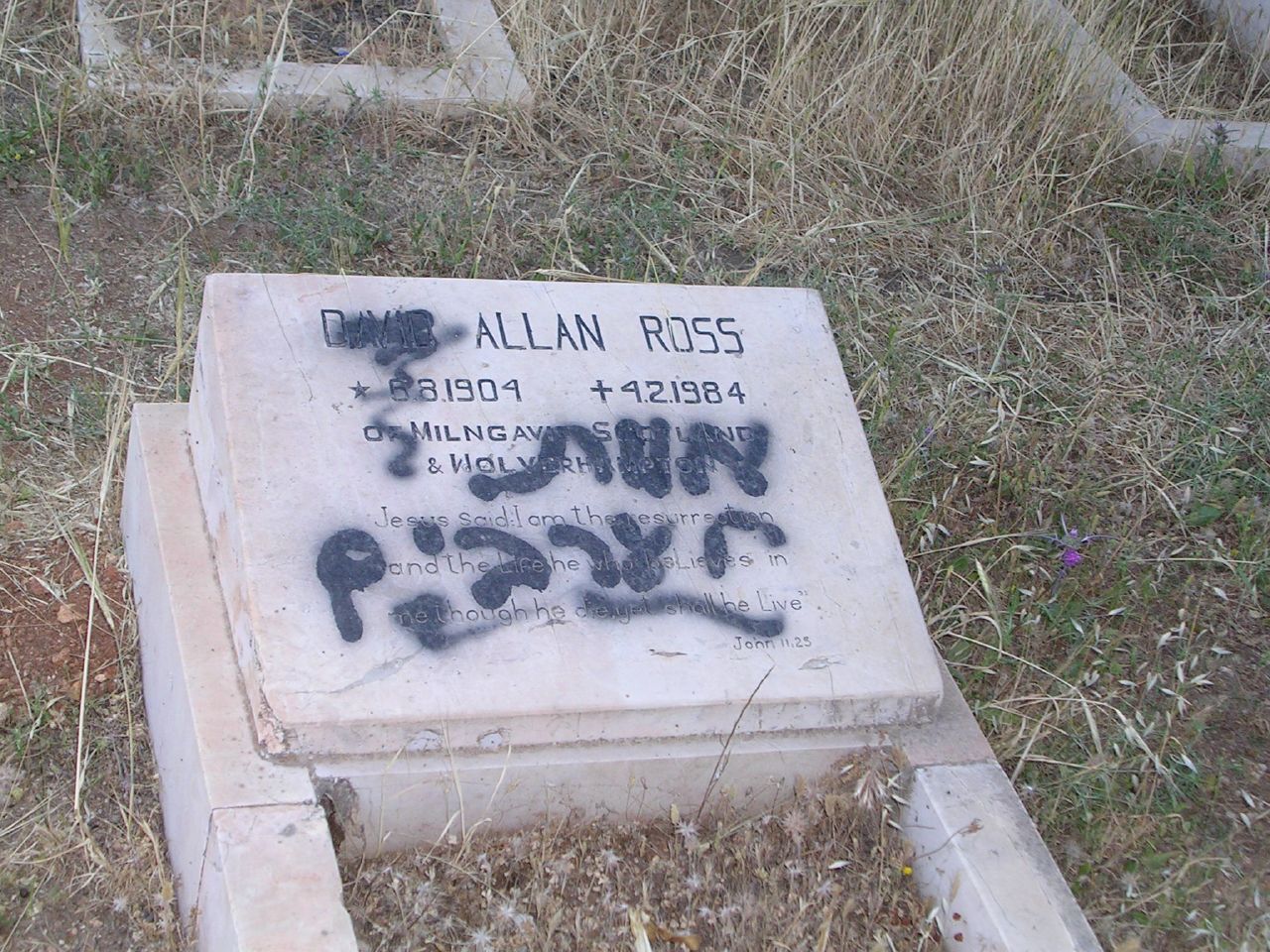|
Employment (Equal Opportunities) Law, 1988
Employment (Equal Opportunities) Law is an Israeli law, whose first version was passed in 1988, that prohibits the employer from discriminating between job applicants or employees. , after a series of amendments, the discrimination based on the following criteria is prohibited: *Sex *Sexual orientation *Marital status (single, married, divorced, or widowed) *Pregnancy *Fertility treatment *Parenting *Age *Race *Religion *Nationality *Country of origin *Residence *Political views *Party affiliation * Reservist duty Anything required by the character or substance of the position or job is not to be deemed discriminatory by the law, e.g., not accepting a Muslim person for the position of Chief Rabbi. Prohibition of discrimination applies to hiring, working conditions, promotion, professional training or studies, discharge or severance pay and benefits and payments provided for employees in connection with their retirement from employment. The law was enacted in 1988, and replaced an e ... [...More Info...] [...Related Items...] OR: [Wikipedia] [Google] [Baidu] |
Employer
Employment is a relationship between two parties regulating the provision of paid labour services. Usually based on a contract, one party, the employer, which might be a corporation, a not-for-profit organization, a co-operative, or any other entity, pays the other, the employee, in return for carrying out assigned work. Employees work in return for wages, which can be paid on the basis of an hourly rate, by piecework or an annual salary, depending on the type of work an employee does, the prevailing conditions of the sector and the bargaining power between the parties. Employees in some sectors may receive gratuities, bonus payments or stock options. In some types of employment, employees may receive benefits in addition to payment. Benefits may include health insurance, housing, and disability insurance. Employment is typically governed by employment laws, organization or legal contracts. Employees and employers An employee contributes labour and expertise ... [...More Info...] [...Related Items...] OR: [Wikipedia] [Google] [Baidu] |
Civil Law (common Law)
Civil law is a major "branch of the law", in common law legal systems such as those in England and Wales and in the United States, where it stands in contrast to criminal law. Glanville Williams. '' Learning the Law''. Eleventh Edition. Stevens. 1982. p. 2.W J Stewart and Robert Burgess. ''Collins Dictionary of Law''. HarperCollins Publishers. 1996. . Page 68. Definition 4 of "civil law". Private law, which relates to civil wrongs and quasi-contracts, is part of civil law, as is contract law and law of property (excluding property-related crimes, such as theft or vandalism). Civil law may, like criminal law, be divided into substantive law and procedural law. The rights and duties of persons ( natural persons and legal persons) amongst themselves is the primary concern of civil law. The common law is today as fertile a source for theoretical inquiry as it has ever been. Around the English-speaking world, many scholars of law, philosophy, politics, and history study the t ... [...More Info...] [...Related Items...] OR: [Wikipedia] [Google] [Baidu] |
1988 In Israel
Events in the year 1988 in Israel. Incumbents * President of Israel – Chaim Herzog * Prime Minister of Israel – Yitzhak Shamir (Likud) * President of the Supreme Court – Meir Shamgar * Chief of General Staff – Dan Shomron * Government of Israel – 22nd Government of Israel until 22 December, 23rd Government of Israel Events * 6 January – Michel Sabbah is consecrated as Roman Catholic Bishop of Jerusalem becoming the first Palestinian Arab to hold this position. * 15 January – In Jerusalem, police and Palestinian protestors clash at the Dome of the Rock; several police and at least 70 Palestinians are injured. * 17 January – Education Minister Yitzhaq Navon orders the mobilisation of high school students to assist in the citrus fruit harvest in a crisis caused by the absence of Palestinian Arab workers. * 18 February – Israeli authorities close ''Tari al-Sharara'' a Hebrew/Arabic newspaper published in Israel. * 25 February – A camera crew working for a ... [...More Info...] [...Related Items...] OR: [Wikipedia] [Google] [Baidu] |
1988 In Law
1988 was a crucial year in the early history of the Internet—it was the year of the first well-known computer virus, the 1988 Internet worm. The first permanent intercontinental Internet link was made between the United States (National Science Foundation Network) and Europe (Nordunet) as well as the first Internet-based chat protocol, Internet Relay Chat. The concept of the World Wide Web was first discussed at CERN in 1988. The Soviet Union began its major deconstructing towards a mixed economy at the beginning of 1988 and began its gradual dissolution. The Iron Curtain began to disintegrate in 1988 as Hungary began allowing freer travel to the Western world. The first extrasolar planet, Gamma Cephei Ab (confirmed in 2003), was detected this year and the World Health Organization began its mission to eradicate polio. Global warming also began to emerge as a more significant concern, with climate scientist James Hansen testifying before the U.S. Senate on the issue. E ... [...More Info...] [...Related Items...] OR: [Wikipedia] [Google] [Baidu] |
Israeli Laws
Israeli may refer to: * Something of, from, or related to the State of Israel * Israelis, citizens or permanent residents of the State of Israel * Modern Hebrew, a language * Israeli (newspaper), ''Israeli'' (newspaper), published from 2006 to 2008 * Guni Israeli (born 1984), Israeli basketball player See also * Israel (other) * Israelites (other), the ancient people of the Land of Israel * List of Israelis {{disambiguation Language and nationality disambiguation pages ... [...More Info...] [...Related Items...] OR: [Wikipedia] [Google] [Baidu] |
Israeli Labour Law
Israeli may refer to: * Something of, from, or related to the State of Israel * Israelis, citizens or permanent residents of the State of Israel * Modern Hebrew, a language * ''Israeli'' (newspaper), published from 2006 to 2008 * Guni Israeli (born 1984), Israeli basketball player See also * Israel (other) * Israelites (other), the ancient people of the Land of Israel * List of Israelis Israelis ( ''Yiśraʾelim'') are the citizens or permanent residents of the State of Israel. The largest ethnic groups in Israel are Israeli Jews, Jews (75%), followed by Arab-Israelis, Palestinians and Arabs (20%) and other minorities (5%). _ ... {{disambiguation Language and nationality disambiguation pages ... [...More Info...] [...Related Items...] OR: [Wikipedia] [Google] [Baidu] |
Anti-discrimination Law In Israel
Discrimination is the process of making unfair or prejudicial distinctions between people based on the groups, classes, or other categories to which they belong or are perceived to belong, such as race, gender, age, class, religion, or sexual orientation. Discrimination typically leads to groups being unfairly treated on the basis of perceived statuses based on ethnic, racial, gender or religious categories. It involves depriving members of one group of opportunities or privileges that are available to members of another group. Discriminatory traditions, policies, ideas, practices and laws exist in many countries and institutions in all parts of the world, including some, where such discrimination is generally decried. In some places, countervailing measures such as quotas have been used to redress the balance in favor of those who are believed to be current or past victims of discrimination. These attempts have often been met with controversy, and sometimes been called reve ... [...More Info...] [...Related Items...] OR: [Wikipedia] [Google] [Baidu] |
Discrimination In Israel
Racism in Israel encompasses all forms and manifestations of racism experienced in Israel, irrespective of the colour or creed of the perpetrator and victim, or their citizenship, residency, or visitor status. More specifically in the Israeli context, racism in Israel refers to racism directed against Israeli Arabs by Israeli Jews, intra-Jewish racism between the various Jewish ethnic divisions (in particular against Ethiopian Jews), historic and current racism towards Mizrahi Jews although some believe the dynamics have reversed, and racism on the part of Israeli Arabs against Israeli Jews. Racism on the part of Israeli Jews against Arabs in Israel exists in institutional policies, personal attitudes, the media, education, immigration rights, housing, social life and legal policies. Some elements within the Ashkenazi Israeli Jewish population have also been described as holding discriminatory attitudes towards fellow Jews of other backgrounds, including against Ethiopian Jews, I ... [...More Info...] [...Related Items...] OR: [Wikipedia] [Google] [Baidu] |
Human Rights In Israel
International human rights organizations, along with the United Nations, and the United States Department of State, have reported human rights violations committed by the State of Israel, particularly against minority groups. These reports include violations of the rights of Palestinians, both inside and outside Israel as well as other groups in Israel. Israel is described in its Declaration of Independence as a "Jewish state" – the legal definition " Jewish and democratic state" was adopted in 1985. In addition to its Jewish majority in the area excluding the occupied Palestinian territories, Israel is home to religious and ethnic minorities, some of whom report discrimination. In the Palestinian territories, successive Israeli governments have been subject to international criticism from other countries as well as international and domestic human rights groups. One of the Basic Laws of Israel, intended to form the basis of a future constitution, Basic Law: Human Dignity ... [...More Info...] [...Related Items...] OR: [Wikipedia] [Google] [Baidu] |
Industry, Trade And Labor Ministry
The Ministry of Economy (, ''Misrad HaKalkala'') is a ministry of the Israeli government that oversees commerce, industry and labor in Israel. History The ministry was established in 1948 as the Ministry of Commerce and Industry. In 1977 the Tourism Ministry post was added to it, becoming the Ministry of Industry, Trade, and Tourism. However, the merger was reversed in 1981 and the office was renamed Ministry of Industry and Trade. Labor, which had been merged with the Welfare Ministry in the 1970s, was appended to the portfolio in 2003. List of ministers Deputy ministers References External linksMinistry website Knesset website {{authority control |
Civil Rights
Civil and political rights are a class of rights that protect individuals' political freedom, freedom from infringement by governments, social organizations, and private individuals. They ensure one's entitlement to participate in the civil and political life of society and the State (polity), state. Civil rights generally include ensuring peoples' physical and mental integrity, right to life, life, and safety, protection from discrimination, the right to privacy, the freedom of freedom of thought, thought, freedom of speech, speech, freedom of religion, religion, freedom of the press, press, freedom of assembly, assembly, and freedom of movement, movement. Political rights include natural justice (procedural fairness) in law, such as the rights of the accused, including the right to a fair trial; due process; the right to seek redress or a legal remedy; and rights of Participation (decision making), participation in civil society and politics such as freedom of association, th ... [...More Info...] [...Related Items...] OR: [Wikipedia] [Google] [Baidu] |
Crime
In ordinary language, a crime is an unlawful act punishable by a State (polity), state or other authority. The term ''crime'' does not, in modern criminal law, have any simple and universally accepted definition,Farmer, Lindsay: "Crime, definitions of", in Cane and Conoghan (editors), ''The New Oxford Companion to Law'', Oxford University Press, 2008 (), p. 263Google Books). though statutory definitions have been provided for certain purposes. The most popular view is that crime is a Category of being, category created by law; in other words, something is a crime if declared as such by the relevant and applicable law. One proposed definition is that a crime or offence (or criminal offence) is an act harmful not only to some individual but also to a community, society, or the state ("a public wrong"). Such acts are forbidden and punishable by law. The notion that acts such as murder, rape, and theft are to be prohibited exists worldwide. What precisely is a criminal offence is def ... [...More Info...] [...Related Items...] OR: [Wikipedia] [Google] [Baidu] |





